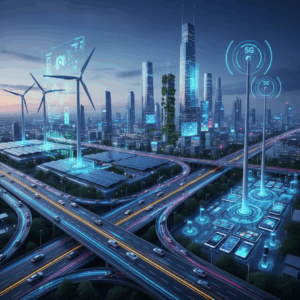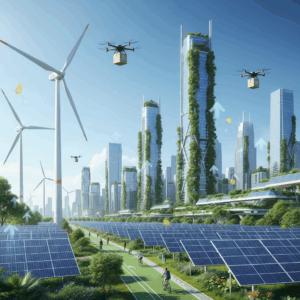Evolution of the labor market in 2025
In 2025, the labor market in Spain is projected to experience an estimated employment growth of 1.51%, reflecting a solid recovery and a reduction in unemployment to historic levels.
Remote and flexible work are becoming the dominant modalities, adapting to the new demands of professionals and companies in a changing environment.
Job growth and unemployment rate in Spain
The unemployment rate in Spain has reached historic lows thanks to effective employment policies and economic recovery after periods of crisis.
However, the difficulty in filling certain positions persists due to a shortage of qualified professionals in key market areas.
Companies face the challenge of adapting their workforces and working conditions to retain talent in a competitive and transformative context.
Impact of technology and ecological transition on work
Technology drives automation, artificial intelligence, and the use of data, transforming traditional jobs and creating new employment opportunities.
For its part, the ecological transition is driving green and sustainable sectors, such as renewable energies, which requires new skills and professional profiles.
This double revolution forces companies to modify their structures and employment policies in order to be competitive and sustainable over time.
Salaries and benefits in the new work environment
The Interprofessional Minimum Wage (SMI) in 2025 increases above inflation, reflecting an effort to improve the purchasing power of workers.
However, pressure on average wages remains due to the economic slowdown and the rising cost of living in Spain.
In addition, companies are incorporating extra benefits to attract and retain talent in an increasingly competitive and dynamic market.
Increase in the Minimum Interprofessional Wage and pressure on average wages
The minimum wage is growing above the expected 2.81% inflation rate, which represents a direct improvement for lower-income workers.
However, average wages are under pressure due to economic uncertainty and rising costs for housing and basic services.
This tension creates a scenario in which wage negotiations must balance business capabilities and employee needs.
Incentives and measures to attract and retain talent
Companies are adopting incentives such as health insurance, ongoing training, and flexible working conditions to keep their employees motivated.
Work-life balance is positioned as a key requirement for many professionals when choosing a job.
These policies are essential to counteract the shortage of qualified professionals and reduce job turnover in key sectors.
Economic influences and cost of living on remuneration
The rising cost of living directly impacts purchasing power, influencing salary and benefit negotiations.
Factors such as inflation in food, housing, and transportation raise workers' expectations of remuneration.
Therefore, companies must adjust their salary policies to maintain competitiveness and employee satisfaction.
Most dynamic sectors and professional demands
In 2025, certain sectors stand out for their rapid growth and high demand for qualified professionals, boosting the Spanish economy.
These industries reflect the transformation of the labor market, affected by digitalization, sustainability, and demographic changes.
Growing industries and high labor demand
Information technology and software development lead the way with a growth of 8.51%, offering numerous employment opportunities.
Similarly, fintech, logistics, and digital services show a notable increase, highlighting the importance of innovation and efficiency.
These industries demand specialized talent, marking a shift towards profiles with digital skills and adaptability.
Demand in health, renewable energy and sustainability
The health sector grows by 6.81% due to demographic aging, increasing the need for professionals in assistance and biotechnology.
Renewable energies, with a growth of 10.21%, generate demand for engineers and technicians in clean technologies.
Sustainability drives green jobs, integrating environmental responsibility into the economy and fostering sustainable innovation.
Skills and qualifications required in 2025
In 2025, the labor market demands both technical and human skills, essential to face the challenges of a digital and sustainable environment.
Increasing automation and digitization demand professionals with advanced technical knowledge and soft skills such as leadership and communication.
Furthermore, the ability to solve complex problems and demonstrate creativity becomes an essential added value.
Technical and human skills required
The most valued technical skills include digital literacy, cybersecurity, and data analysis, which enable one to face technological challenges.
Simultaneously, human skills such as emotional intelligence, teamwork, and adaptability are crucial for good job performance.
Leadership and effective communication facilitate the management of diverse teams and innovation within organizations.
Relevant data
85% of employers in Spain prioritize soft skills combined with digital skills when selecting talent in 2025.
This trend confirms the need for a balance between technical knowledge and human capabilities to remain competitive.
Flexibility, adaptation and continuous learning
Professionals must cultivate flexibility to adapt to rapid market changes and new ways of working, including teleworking.
Constant adaptation to emerging technologies and innovative business models is essential to maintaining professional relevance.
Lifelong learning is positioned as a requirement to update knowledge and skills in the face of the constant evolution of the work environment.






